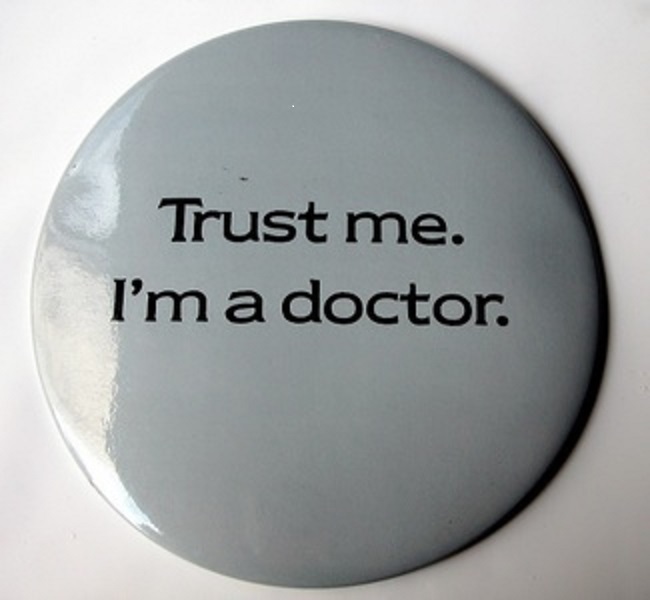I have connected with many women in the nine years since my unwarranted hysterectomy. I have been appalled and saddened by the number of women who were railroaded into hysterectomy and/or oophorectomy (ovary removal – castration) by being told that it was necessary. Some were misled into believing they had cancer or pre-cancer when they did not. Some were referred to oncologists unnecessarily to further instill fear.
The fact that only 2% of these surgeries are done for a cancer diagnosis and most pre-cancerous conditions are treatable without organ removal, something is certainly “rotten in Denmark.”
Gynecologic Cancer Statistics
According to U.S. government cancer statistics, the average woman’s lifetime risk of gynecologic cancers is rare. Specifically, statistics are:
- Cervical – 0.7%
- Endometrial – 2.7%
- Ovarian – 1.3%
With these low rates of cancer as well as the organ-sparing treatments available for almost all gynecologic maladies including abnormal or precancerous cells (that may never even turn into cancer), why are surgeons removing so many female organs?
Using Cancer to Market Hysterectomy
With the prevalence of cancer scare tactics by surgeons and the media, women tend to focus on ridding themselves of the potential for cancer even though that risk is very low for all but a small percentage of women. This focus on the cancer aspect is oftentimes to the exclusion of considering the long-term adverse effects of losing the uterus and/or ovaries. Very few people encourage women to question their doctors. This is even rarer when the “c” word is used.
The Big C: Is it Cancer or Conspiracy?
With the cancer rates so low, one has to wonder whether the big C we all hear about, is cancer or something else. Based on all the research I have done and the many women with whom I have connected since my unwarranted hysterectomy and castration, I have concluded that the “C” isn’t about cancer at all. It is about conspiracy.
The Free Dictionary defines “conspiracy” as “An agreement to perform together an illegal, wrongful, or subversive act.” Let’s break down the definition of “conspiracy”:
- “an agreement to perform together”
There are many players in the annual $17B hysterectomy and oophorectomy industry – the surgeons and their nurses and office staff, the anesthesiologists, the hospitals and their nurses and other staff, the medical device manufacturers (e.g., da Vinci robot), and indirectly the pharmaceutical companies that manufacture and market hormone “replacement” drugs and other drugs to treat conditions resulting from post-hysterectomy side effects.
- “an illegal, wrongful, or subversive act”
A medical treatment that is procured through misleading or dishonest information and omission of facts from a doctor or other medical professional is, plain and simple, wrong. And the unnecessary removal of organs with vital, lifelong functions is a most egregious act which should be treated as assault and battery as well as fraud.
How else can one explain the removal of 1 in 3 women’s vital sex organ(s) by age 60 and 1 in 2 by age 65 with these very low cancer rates? And how else can one explain that 78% of women ages 45 to 64 lose healthy ovaries at the time of hysterectomy?
Prophylactic Ovary Removal with Hysterectomy: More Deadly than Cancer
What else would account for the fact that these damaging surgeries are a $17B industry despite the many medical studies showing the long-term harm? This article highlights the absurdity of pre- and post-menopausal prophylactic ovary removal due to the “higher risks of coronary heart disease, stroke, hip fracture, Parkinsonism, dementia, cognitive impairment, depression and anxiety in many studies. While ovarian cancer accounts for 14,800 deaths per year in the USA, coronary heart disease accounts for 350,000 deaths per year. In addition, 100,000 cases of dementia may be attributable annually to prior bilateral oophorectomy.” And post-hysterectomy ovarian failure which occurs at a fairly high rate would have these same risks. Although the heart disease fact sheet on the Centers for Disease Control and Prevention’s (CDC) website lists heart disease as the #1 killer of women, there is no mention of the link between female organ removal and heart disease. Nor does the CDC’s dementia fact sheet list it as a risk factor for dementia.
ACOG Says: Most Hysterectomies not Medically Necessary
A 2000 study showed that 76% of hysterectomies did not meet ACOG criteria and 70% were deemed unnecessary. An excerpt says “The most common reasons recommendations for hysterectomies considered inappropriate were lack of adequate diagnostic evaluation and failure to try alternative treatments before hysterectomy.” Another excerpt says “Hysterectomy is often recommended for indications judged inappropriate. Patients and physicians should work together to ensure that proper diagnostic evaluation has been done and appropriate treatments considered before hysterectomy is recommended.”
In other words, women need to proceed with extreme caution and not rely on their Gynecology specialists’ treatment recommendations. So who can women trust??
Women to Women “Support” for Hysterectomy Decisions? Maybe. Maybe not.
Can women count on other women who have had hysterectomies and/or oophorectomies to share the negatives? In my experience, not so much. This is likely due to a number of factors but primarily, if a woman believes the removal of her organ(s) was necessary, as many are led to believe, she is less apt to share the negatives because she assumes the surgery was necessary for her and must be necessary for other women. Even when the organ removal was truly her choice, the horrifying effects can be too much to bear, much less admit to others. It is difficult to admit when one makes a medical mistake, especially when there is nothing available to fix the mistake.
After I had my hysterectomy, the last thing I wanted to do was call attention to my severely thinning, dry, frizzy hair, my rapidly aging / sagging skin, and horrifying figure changes. I have since become outspoken and hope that the visible effects of having my organs removed have made an impact on those who know my situation. For those who did not know me or my situation, I am sure there were whispered questions “what happened to her?”
Post-hysterectomy, I experienced personality changes. My vivacious, happy, social disposition changed drastically almost overnight to the exact opposite. I became a recluse, seldom talked, never laughed, and was suicidal with depressed and anxious thoughts. This was before any of the classic menopausal symptoms kicked in. These changes had to be obvious to my co-workers, friends, and family members. The loss of my sexual “energy” may have been lost on many but was very apparent to me (and my husband). Even though talk of sex and sexuality is all over the media, it is still somewhat taboo to share such intimate information. And who wants to admit that they have lost their sexuality? From my experience, it can be difficult to share the breadth and depth of symptoms experienced after the ovaries are removed and so, woman to woman support may not be as forthcoming as we might hope. You can read my unnecessary hysterectomy story here.
Post Hysterectomy Symptoms Develop Gradually
Another reason woman to woman support is not always helpful is that many of the negative effects of hysterectomy do not develop immediately, especially when ovaries are not removed. Women who have been suffering with severe and/or prolonged health issues prior to the hysterectomy, are happy to get relief and, therefore, tell others they were glad they had the surgery. Once the problems start stacking up, they may not want to reverse course and admit that their hysterectomy and/or oophorectomy was a mistake. Moreover, they may not associate new symptoms with the surgery, especially those that developed gradually or cropped up many months or years down the road. Regardless of the problems that led up to the surgery, it is human nature to justify our decisions and discount the negatives of those decisions.
Finally, many people (women and men) find it difficult to believe that a surgery that is so common can have such serious and permanent side effects. Why would these surgeries be so prevalent if they can cause so much harm? Don’t doctors take an oath to “do no harm?” When I was told I needed organs removed, I know my first thought was surely my doctor (one I had respected for 19 years) would not remove organs needlessly. Boy, was I wrong!
Hysterectomy Forums are not Entirely Balanced
You would think internet hysterectomy forums would give women ample information about the many negative effects and the gross overuse of hysterectomy and oophorectomy. Speaking out anonymously on a forum is “safer” than doing so in person, but for any number of reasons, balanced discussions regarding the risks versus the benefits of hysterectomy and/or ovary removal are rare on public hysterectomy forums.
Many women don’t seem to take the time to read old posts before proceeding to surgery. Instead, they post asking for input and tend to base their decisions on the responses they get. These opinions, along with their surgeons’ input tend to omit or gloss over the long-term effects of hysterectomy. In some cases, time constraints derail a woman’s ability to research her options. From my experience, surgeons tend to rush women into surgery.
Some hysterectomy forums exude camaraderie and sisterhood amongst the hysterectomy ranks. However, if your experiences are negative and you discourage hysterectomy, your voice is drowned out by all those encouraging hysterectomy, both ones who have had the surgery (many who are recently post-op) and ones who are considering or scheduled for surgery. Posts will be hidden or blocked if the staff considers them too negative or members or staff report your posts as “frightening.”
The hiding or blocking of posts does not align with providing women thorough discussion of hysterectomy risks versus benefits. In fact, hiding posts from women who have had negative experiences with hysterectomy and/or ovary removal, biases the forum in favor of organ removal. For women considering surgery, not seeing the potentially negative consequences can skew their decision making. Biased discussions, hidden or blocked posts also occur on surgical menopause forums. I was banned from a surgical menopause forum for talking about the anatomical and skeletal changes that develop post-hysterectomy, information women should have prior to making a decision. This article explains the post-hysterectomy figure changes.
C = Conspiracy
Clearly, conspiracy is much more at play than cancer when it comes to female organ removal. Buyer beware! Any woman considering a hysterectomy and/or oophorectomy should watch the HERS Foundation’s video of “Female Anatomy: the Functions of the Female Organs.” Yes, it IS frightening but wouldn’t you want to know the possible repercussions before consenting to something so permanent especially if you do not have cancer?
We Need Your Help
Hormones Matter needs funding now. Our research funding was cut recently and because of our commitment to independent health research and journalism unbiased by commercial interests we allow minimal advertising on the site. That means all funding must come from you, our readers. Don’t let Hormones Matter die.
Yes, I’d like to support Hormones Matter.
This post was published originally in October 2014.






